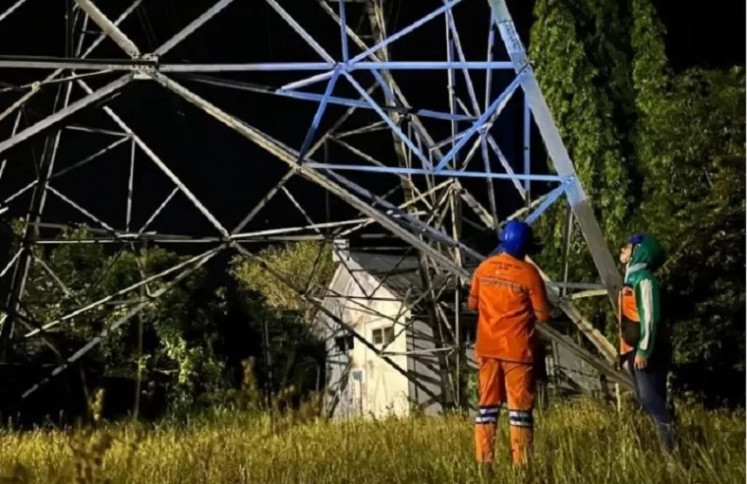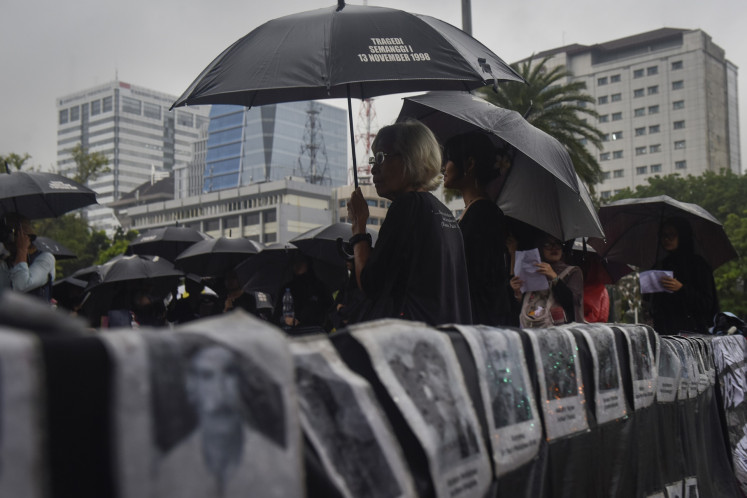Popular Reads
Top Results
Can't find what you're looking for?
View all search resultsPopular Reads
Top Results
Can't find what you're looking for?
View all search resultsThe risk of Indonesia’s low literacy in the era of AI misinformation
The efficiency with which AI-generated content can be spread on the internet presents a huge problem for Indonesia, whose population ranks among the most online but without adequate literacy skills.
Change text size
Gift Premium Articles
to Anyone
O
n May 22, a fake Twitter account called “Bloomberg Feed” posted a photo that suggested a large explosion in the Department of Defense’s Pentagon complex in Virginia, the United States. While the account had less than 1,000 followers and the photo was quickly debunked by the local police department as an AI-generated image, the misinformation had already been spread by larger accounts and reportedly caused a small dip of 0.26 percent in the stock market before it quickly bounced back.
Previously in March, AI-generated images of Pope Francis in a white boutique coat were spread across social media and were indistinguishable from normal photographs. This pushed tech publications to create detailed analyses that breaks down evidence of AI manipulation, but not before it successfully enforced fringe beliefs about the papacy that had already circulated among users on the internet.
These two events demonstrate the latest capabilities of emerging AI models that specialize in generating text or images. The International Telecommunications Union, for one, has proclaimed the “death of authenticity” over how easily synthetic media produced by AI can spread online.
While they remain an impressive feat of engineering, generative AI models now clearly present risks whereby malicious actors can spread misinformation in a highly efficient manner. This is a problem unique to AI as it is generally developed to reduce the costs associated with labor-intensive processes, such as copywriting and graphic design. It can be made realistic enough to fool regular users and perhaps sway an election, which in Indonesia will take place in about seven months.
For Indonesia, where bookstores are closing operations because of lack of interest, this will inadvertently exacerbate the national issue of literacy. Already, we are placed among countries with the lowest literacy skills worldwide. A 2015 Organization for Economic Cooperation and Development (OECD) report found that only 5.4 percent of adults in Jakarta had attained an acceptable level of literacy, and almost 70 percent were only able to process information with basic vocabulary knowledge.
A 2016 survey by the Central Connecticut State University that ranks the world’s “most literate nations” placed Indonesia in the second-lowest country in terms of reading interests. This is confirmed by the Education Ministry’s reading index (Alibaca) which shows that, on a 100-point scale, the nation’s access to books ranks at only 23.1 while the reading culture sits at 28.5.
At a more granular level, gender issues have also contributed to the problem, with the OECD report showing that women scored significantly lower than men in both literacy and numeracy. Additionally, high levels of literacy are shown to have continuity across generations, which also suggests a strong link between social units such as families and the maintenance of reading ability.



















